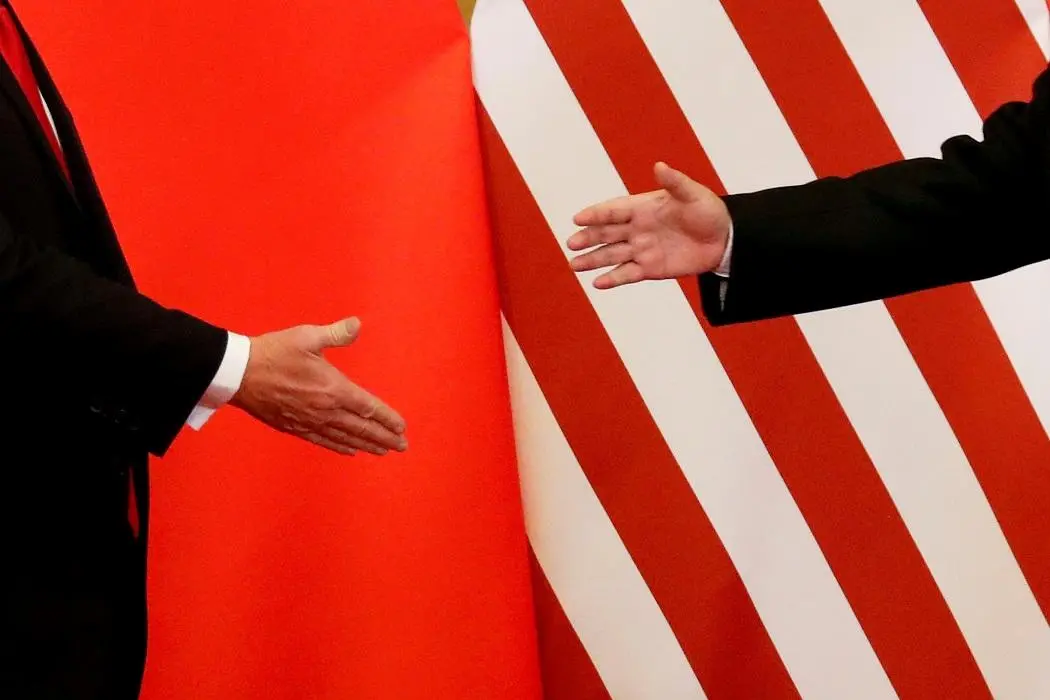PHOTO
If we peel away the intrigue and the headlines coming out of the White House, a troubling American descent into isolationism becomes visible. Before the election, the Trump campaign framed themselves as “fixers,” ready to roll up their sleeves to mend what the previous administration “broke” at the expense of the average American. They touted dying farms, mines, power stations and industries battling declines inflicted by overzealous, regulatory excess and unwarranted concern for honoring foreign pacts now crippling Middle America.
To half of the American electorate and much of the world, this was a ludicrous proposition. The US had spearheaded a robust recovery from the 2008 recession, and the global economy was showing signs of roaring back to life. The resurgence was not without its pains, but the 2016 election came at an important juncture. Surely it was inevitable that, whichever candidate won, they would at least maintain America’s premier role in the global economy.
But along came Donald Trump.
Setting aside the speculation behind Trump’s motivation for America to exit the world stage, a minimal US. footprint in a recently recovered global economy is an extremely unsettling development. Nations in the developing world that had just recently shrugged off the effects of the Great Recession must now contend with the world’s foremost economy shutting its doors to trade, immigration, peacekeeping and its role as a stabilizing force in the world.
The effects of America’s retreat are readily visible in the Middle East and North Africa, where the US has remained entwined in this region’s political and socioeconomic developments, from outright war and regime change to development and military aid. In fact, much of the Arab world’s history since the end of the Second World War has been influenced greatly by the shifting tides and winds of Washington politics.
Democratic administrations have always sought conciliatory diplomacy and development aid in their policies, much to the ire of the Israelis. Meanwhile, Republicans have tended to be more combative, electing for variations of military involvement and punishing sanctions, for instance. However, in the 70-year history of the global order since the end of the Second World War, never has the US adopted such an isolationist stance before, fueled by the otherism that defines Trump politics.
Thus, it has become imperative for the Arab world’s economies to treat Trump’s recent show at the G7 as a serious crisis that, if left unchecked, could have serious ramifications, especially for post-Arab Spring nations undergoing IMF-advocated austerity measures that have even recently sparked economically motivated protests in Jordan and added to a region-wide sense of despair. There is no knowing how the current administration would respond should the region descend into chaos again if the global economy slowed and reversed gains from punishing economic policies meant to hinder excessive government spending.
However, the Arab world can possibly mitigate the effects of a disengaging America by engaging with other trade partners in Europe and Asia, whittling down any substantial trade with the United States where possible. Most US allies and Asian nations have opted simply to work with other countries, especially among themselves, and join alternative trade pacts and multilateral agreements to react to Washington’s lack of direction and conclusive policy.
Engaging with new trading partners or, at the very least, preparing and integrating local markets and export industries for this new reality would ensure that, when the negative effects of global disengagement strike the US economy, Arab world economies would not be dragged down with it. However, the Trump administration’s closeness to some Arab economies and its traditional support of Egypt would make such decisions difficult to implement without upsetting Washington.
As the New Yorker magazine put it: “Under Trump, ‘America First’ really is turning out to be ‘America Alone.’ From trade…to NAFTA, the president has created the highest level of tension between the US and its allies in decades.”
Trump’s combative attitude toward America’s allies, who have contributed greatly to the American-led relative peace in the past 70 years, somewhat indicates that the time might be ripe for a new kind of world order. The world has grown far too complex for a tiered approach to diplomacy, whereby the U.S. would go it alone and others join in. Perhaps the time has come for the US to shed some of its obligations to other entities such as the European Union, China, the United Nations and other international organizations that are better placed and more knowledgeable for the growing intricacies and complexities of a multifaceted 21st-century world.
• Hafed Al-Ghwell is a senior adviser at the international economic consultancy Maxwell Stamp and the geopolitical risk advisory firm Oxford Analytica, a member of Strategic Advisory Solutions International in Washington DC and a former adviser to the board of the World Bank Group.
Twitter: @HafedAlGhwell
Copyright: Arab News © 2018 All rights reserved. Provided by SyndiGate Media Inc. (Syndigate.info).





















